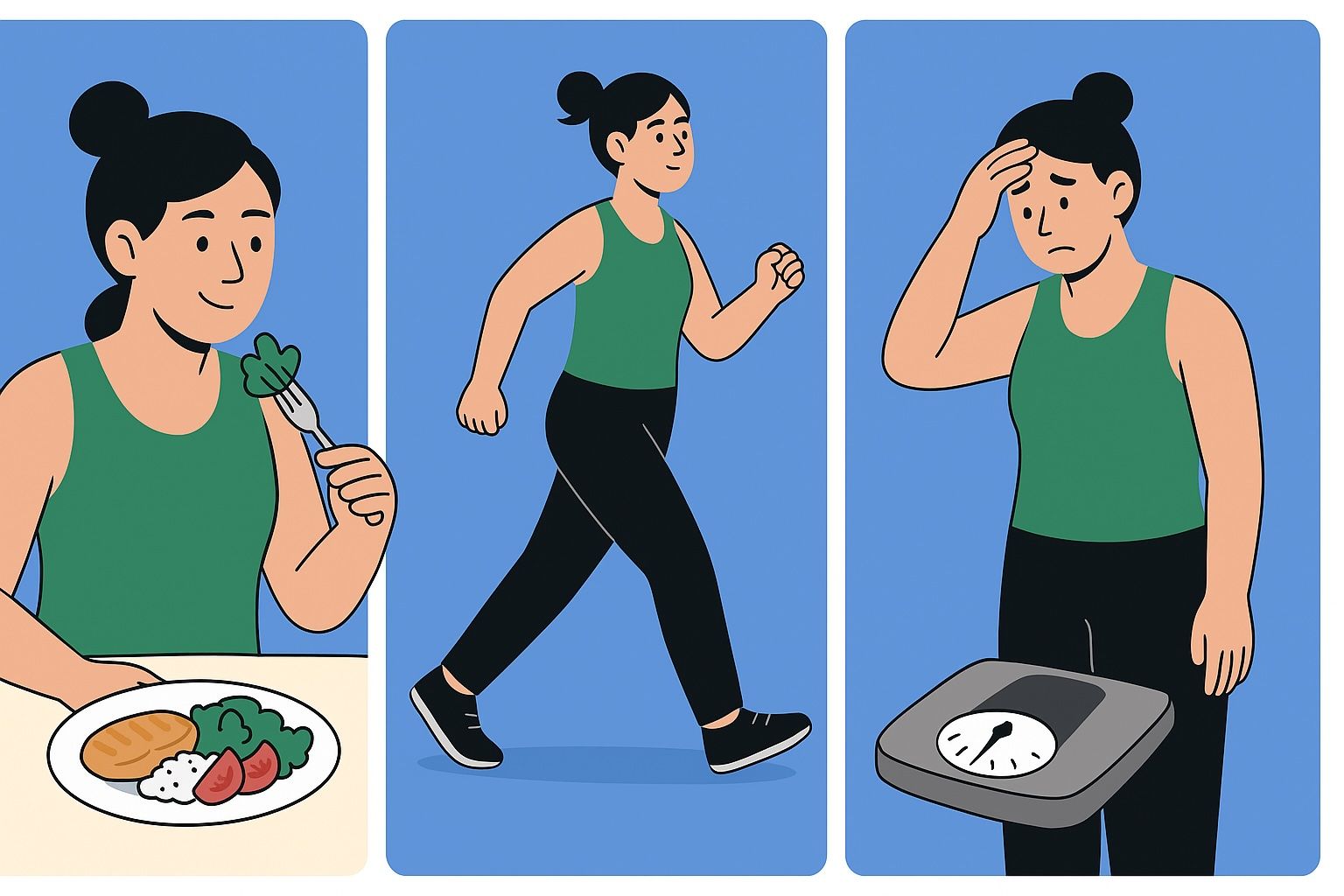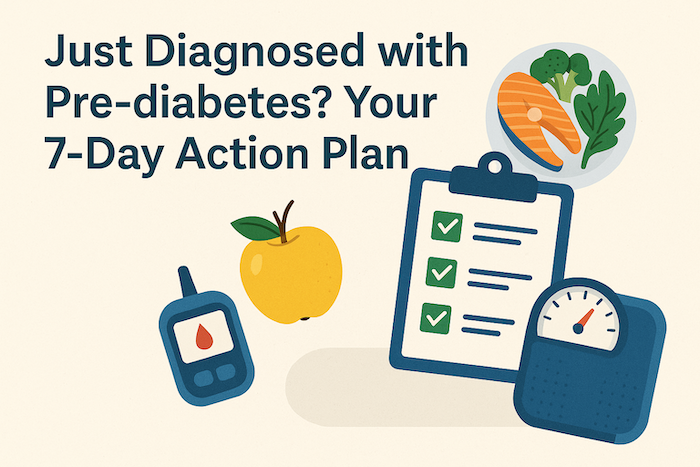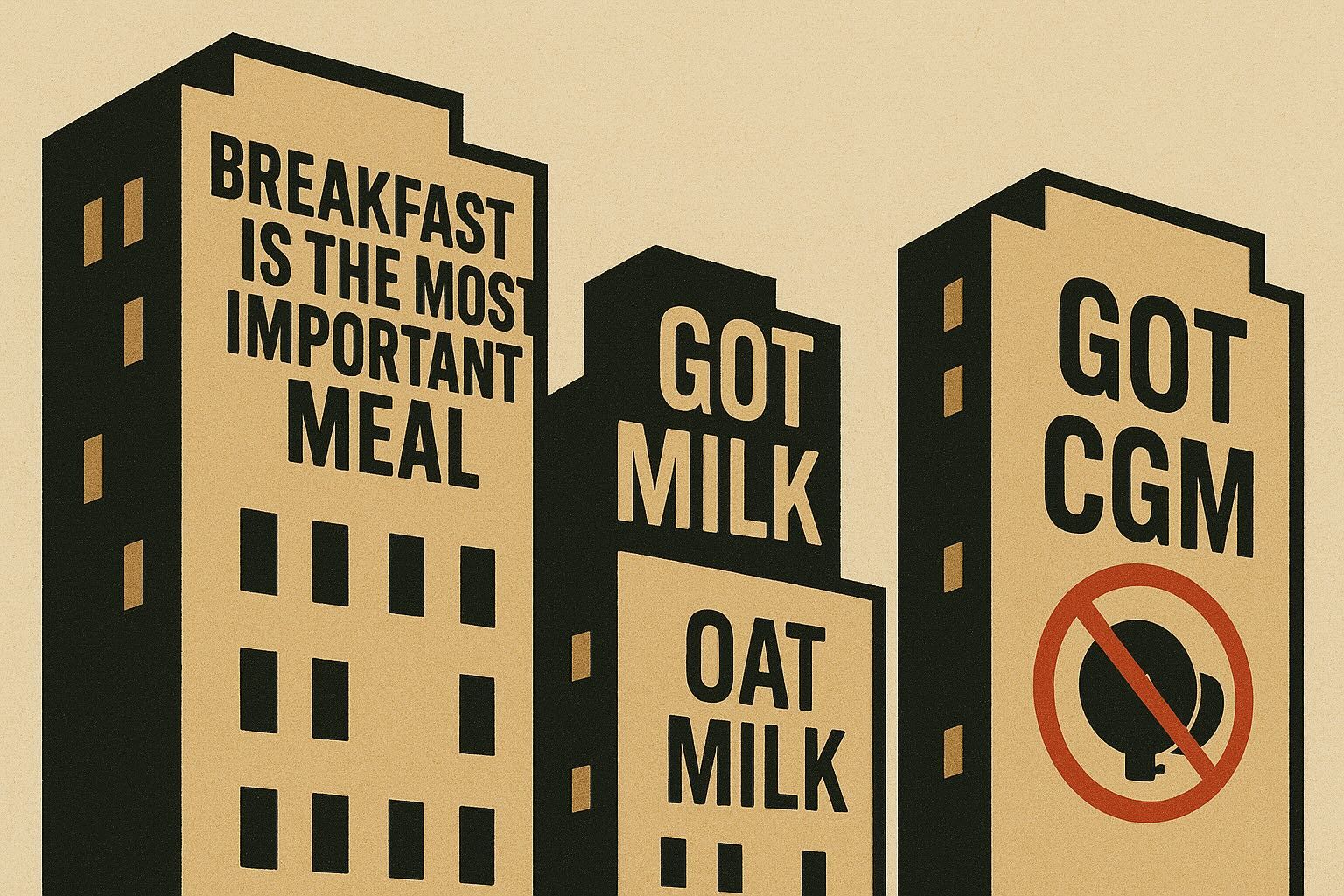2025 PCOS Starter Guide: 7 Rules for Hormone & Sugar Balance
Published on 10/15/2025 · 📖 4 min read

You’re Not Alone — and You Have More Control Than You Think
If you’ve recently learned you have PCOS (Polycystic Ovary Syndrome) — or you suspect your hormones and energy levels feel “off” — you might be wondering what’s really happening behind the scenes.
Maybe you’ve noticed fatigue after meals, stubborn weight changes, or cravings that don’t seem to match your efforts.
That’s because PCOS isn’t just about reproductive hormones — it’s closely linked to how your body uses insulin and regulates blood sugar.
The encouraging news?
You can start small — building habits that may support balanced hormones, steady energy, and better overall wellness.
🏆 The 7 Golden Rules for PCOS and Blood Sugar Wellness
Simple, sustainable steps that may help steady your hormones and support healthy metabolism — without restrictive diets or burnout.
🥦 1. Start Every Meal With Fiber or Protein
Why:
Fiber and protein help slow down how your body absorbs carbohydrates, which may reduce post-meal glucose spikes and support more stable hormones.
How:
Before diving into your main carbs, start with:
- A boiled egg or Greek yogurt
- Leafy greens, steamed veggies, or a small salad
- A handful of almonds, chia pudding, or pumpkin seeds
🍞 2. Stick to One Main Carb Per Meal
Why:
Combining multiple carb sources — like bread, pasta, and juice — may overwhelm your insulin response. Keeping it simple can make a big difference.
How:
Pick one:
- Bread or pasta
- Rice or potatoes
- Fruit or smoothie
Avoid layering multiple carb-heavy foods in one sitting.
🍎 3. Skip Fruit or Milk-Based Drinks Right After Meals
Why:
Even natural sugars (like fruit or milk) can add up when your body is already processing carbs. This can make it harder to maintain balanced energy.
How:
- Wait at least 90 minutes after meals for fruit or lattes
- Or pair fruit with nuts or yogurt to slow absorption
🛌 4. Sleep and Stress Matter — A Lot
Why:
Poor sleep and chronic stress raise cortisol — a hormone that can worsen insulin resistance and influence reproductive hormones.
How:
- Aim for 7–8 hours of restful sleep
- Set a digital “wind-down” hour before bed
- Try a brief walk, deep breathing, or journaling after stressful moments
🚶 5. Move for 10 Minutes After Every Meal
Why:
Even light movement helps your muscles use glucose for energy instead of letting it linger in your bloodstream.
How:
- Walk around your home or block after meals
- Stretch, step in place, or pace during calls
- Consistency matters more than intensity
🧠 6. Track Your Meals for a Month — and Pair Them With Walks
Why:
Tracking for several weeks helps you see how your meals, movement, and cycle phases influence energy and mood. Over time, these patterns can help you understand how to support your metabolism naturally.
How:
- Log your meals for two to three weeks — focus on learning, not perfection
- Pair each meal with a short walk to support digestion and insulin sensitivity
- Use the GlucoSpike AI app to snap meal photos and see AI-based insights into how different foods may affect your energy — no devices or needles required
💧 7. Drink More Water Than You Think You Need
Why:
Hydration supports metabolism and helps your body regulate hormones efficiently.
How:
- Aim for 8–10 cups daily
- Add lemon or electrolytes for variety
- Minimize sugary or “natural” drinks that can raise blood sugar
🎯 Final Thoughts
PCOS can feel overwhelming — but it’s also an opportunity to reconnect with your body.
By focusing on blood sugar awareness, mindful movement, and balanced nutrition, you may support steadier energy, better mood, and hormone harmony over time.
With GlucoSpike AI, you can build those habits naturally — no wearables or complicated tracking required.
Just snap a photo, see how your meal may impact your energy, and start learning what works best for your unique metabolism.
👉 Download GlucoSpike AI on the App Store
👉 Download GlucoSpike AI on the Play Store
📷 Eat smarter. One photo at a time.
Sources
Disclaimer
This article is intended for general wellness education only. It is not medical advice. Please consult a qualified healthcare provider for personalized medical guidance or treatment.
Written by the GlucoSpike Wellness Team — passionate about making hormone and blood sugar education simple, supportive, and science-based.
 GlucoSpike AI
GlucoSpike AI 

